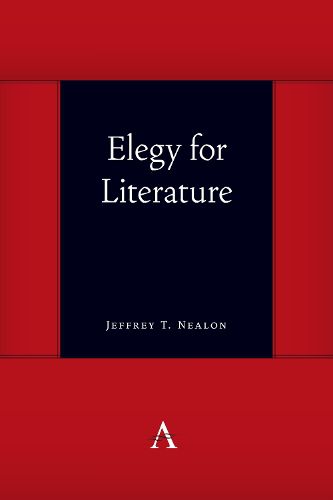Readings Newsletter
Become a Readings Member to make your shopping experience even easier.
Sign in or sign up for free!
You’re not far away from qualifying for FREE standard shipping within Australia
You’ve qualified for FREE standard shipping within Australia
The cart is loading…






The first chapter is an overview of the current crisis of literary study, brought about by downsizings following the crash of 2008 (from which literary studies never really recovered), compounded by the Covid pandemic, and rocked by the bedrock questions put to the academic study of literature by the Black Lives Matter protests. This chapter also looks at why theory matters in the present - as an introduction to modes of questioning and ways of life, which the author opposes to the English department’s understanding of literature as a series of disciplinary objects to be understood or appreciated.
The second chapter is a specific exploration of the novel, the current reigning form of literature and literary study in both popular and academic contexts, and the novel’s relation to the present (of new materialism) and the past (the European history of the novel as the official form for warehousing bourgeois subjective experience). If new materialism (including anti-racist critiques) questions the world-view of bourgeois Eurocentric humanism, it also brings into question the centrality of that world view’s primary artistic form, the novel.
$9.00 standard shipping within Australia
FREE standard shipping within Australia for orders over $100.00
Express & International shipping calculated at checkout
The first chapter is an overview of the current crisis of literary study, brought about by downsizings following the crash of 2008 (from which literary studies never really recovered), compounded by the Covid pandemic, and rocked by the bedrock questions put to the academic study of literature by the Black Lives Matter protests. This chapter also looks at why theory matters in the present - as an introduction to modes of questioning and ways of life, which the author opposes to the English department’s understanding of literature as a series of disciplinary objects to be understood or appreciated.
The second chapter is a specific exploration of the novel, the current reigning form of literature and literary study in both popular and academic contexts, and the novel’s relation to the present (of new materialism) and the past (the European history of the novel as the official form for warehousing bourgeois subjective experience). If new materialism (including anti-racist critiques) questions the world-view of bourgeois Eurocentric humanism, it also brings into question the centrality of that world view’s primary artistic form, the novel.